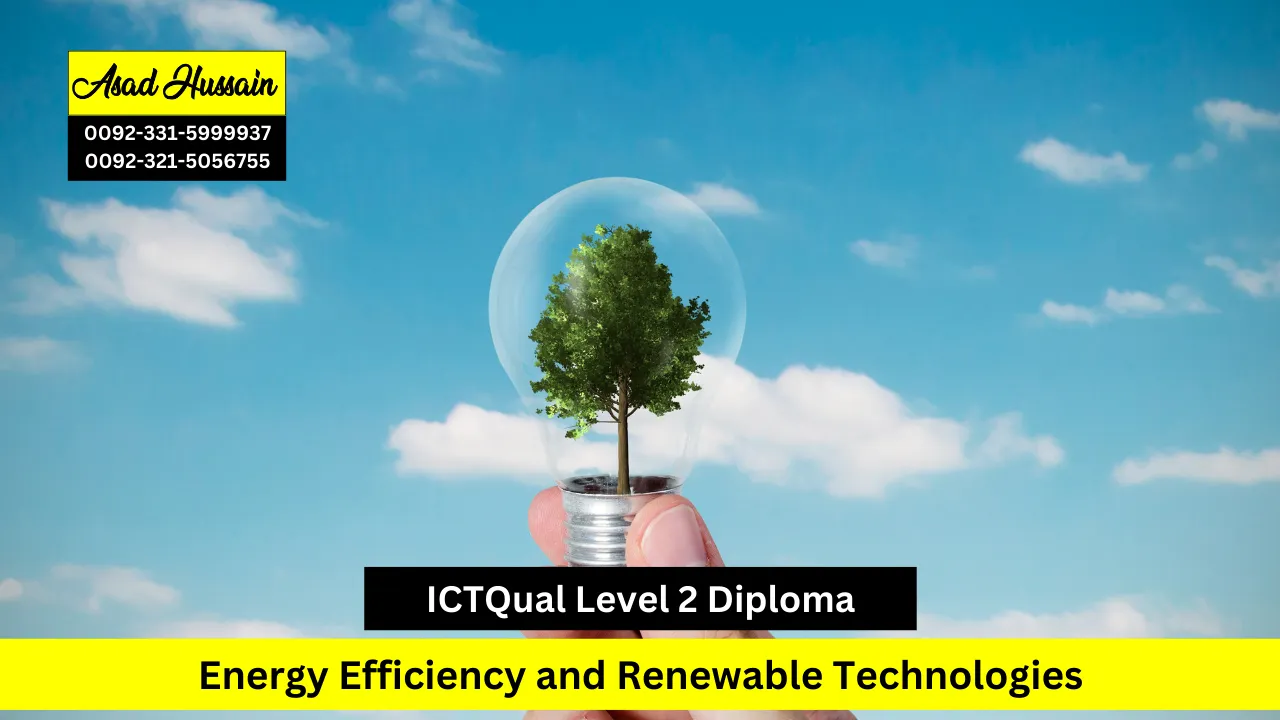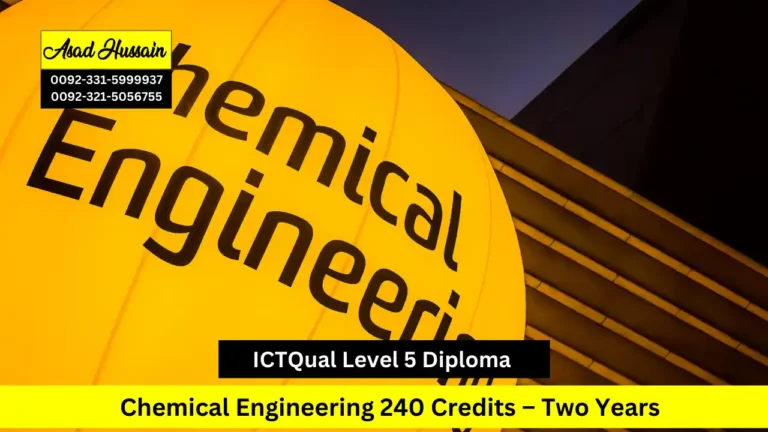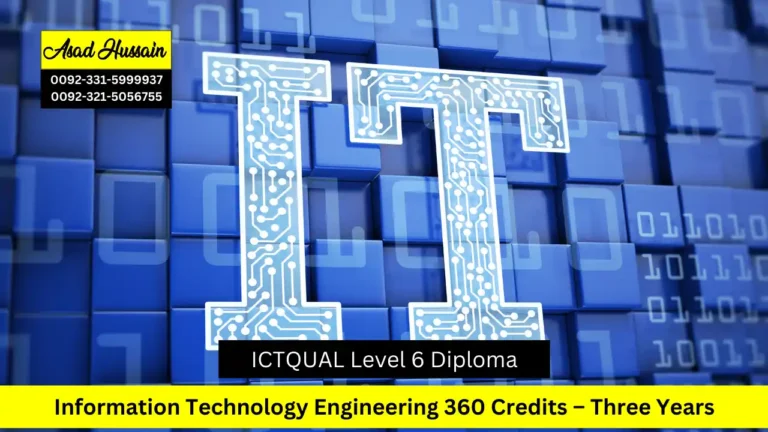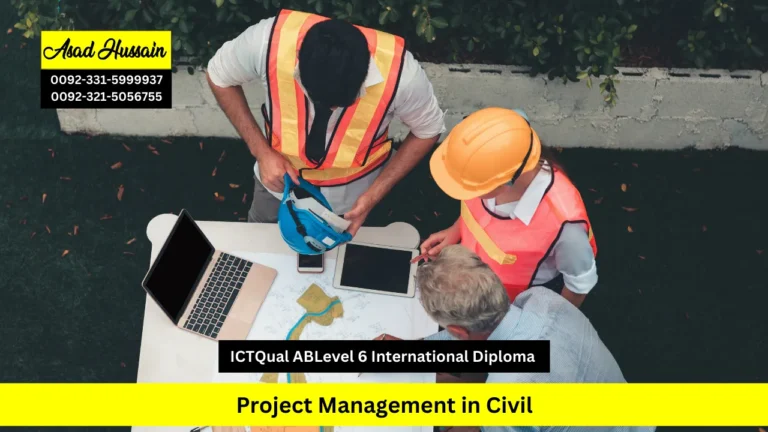As the global demand for sustainable energy solutions continues to rise, understanding energy efficiency and renewable technologies has become essential for individuals and organizations alike. The ICTQual Level 2 Diploma in Energy Efficiency and Renewable Technologies provides learners with foundational knowledge and practical skills to support energy-saving initiatives and the adoption of renewable energy solutions. This program is ideal for those seeking to enter the energy sector, enhance their technical expertise, or build a career in sustainability-focused roles.
The ICTQual Level 2 Diploma in Energy Efficiency and Renewable Technologies covers key areas such as energy efficiency principles, renewable energy technologies, basic energy auditing, and environmental sustainability practices. Learners will gain the ability to assess energy consumption, identify opportunities for efficiency improvements, and understand the operational and environmental benefits of renewable energy integration. Emphasis is placed on practical learning, enabling participants to apply theoretical concepts to real-world scenarios in residential, commercial, and industrial contexts.
Through interactive workshops, case studies, and applied exercises, learners will develop essential skills in evaluating energy systems, implementing energy-saving measures, and supporting sustainable operational practices. The ICTQual Level 2 Diploma in Energy Efficiency and Renewable Technologies also introduces participants to relevant regulations, standards, and safety considerations, ensuring compliance and best practices in energy management.
Graduates of this diploma will be prepared for entry-level roles such as Energy Efficiency Assistant, Renewable Energy Technician, Sustainability Support Officer, or Facilities Energy Coordinator. By combining foundational knowledge with hands-on applications, the ICTQual Level 2 Diploma in Energy Efficiency and Renewable Technologies equips learners with the expertise and confidence to contribute to energy-saving initiatives, support sustainability goals, and lay the groundwork for further professional development in the energy sector.
Program Highlights
Study Units
- Introduction to Energy Management
- Renewable Energy Sources
- Energy Efficiency Measures
- Energy Storage and Distribution
- Sector-Specific Applications
- Policy and Financial Incentives
- Health, Safety, and Environmental Considerations
- Emerging Technologies and Trends
- Project-Based Learning
- Industry Visits and Guest Lectures
To enroll in the ICTQual Level 2 Diploma in Energy Efficiency and Renewable Technologies, applicants must meet specific academic, professional, and language criteria. These requirements ensure learners are well-prepared to succeed in the program and gain the foundational knowledge and practical skills necessary for careers in energy efficiency, renewable technologies, and sustainability.
Age Requirements
- Applicants must be at least 16 years old to enroll in the program.
- Mature learners aged 18 and above with an interest in energy efficiency or sustainability are encouraged to apply.
Educational Requirements
- Completion of secondary education or equivalent (high school diploma, GCSEs, or relevant technical qualifications).
- Basic knowledge in science, mathematics, or technology is preferred to facilitate understanding of energy systems.
Professional Experience
- No formal work experience is required, making the course suitable for beginners and those entering the energy sector.
- Individuals with exposure to energy, facilities management, or environmental projects may benefit from prior experience but it is not mandatory.
English Language Proficiency
- Non-native English speakers must demonstrate proficiency through IELTS (minimum 4.0) or an equivalent qualification.
- Evidence of previous education or work experience in English-medium environments may also be accepted.
The ICTQual Level 2 Diploma in Energy Efficiency and Renewable Technologies is designed to provide learners with foundational knowledge, practical skills, and professional insight into energy efficiency and renewable energy technologies. Graduates will gain the expertise to assess energy consumption, implement efficiency measures, and support sustainability initiatives across various sectors.
Introduction to Energy Management
- Understand basic concepts of energy, energy consumption, and energy efficiency.
- Identify key energy management practices in residential, commercial, and industrial settings.
- Develop skills to monitor and report on energy usage using simple measurement tools.
- Apply energy management principles to support sustainability initiatives.
- Recognize the benefits of energy efficiency for cost savings and environmental protection.
Renewable Energy Sources
- Gain knowledge of common renewable energy sources, including solar, wind, hydro, and biomass.
- Understand the operational principles and applications of renewable energy technologies.
- Evaluate the benefits and limitations of renewable energy systems in different contexts.
- Develop basic skills to recommend renewable solutions for small-scale projects.
- Analyze the environmental impact of using renewable energy versus conventional energy.
Energy Efficiency Measures
- Identify practical strategies to reduce energy consumption in buildings and facilities.
- Understand energy-saving technologies and their applications in everyday operations.
- Learn to assess and prioritize energy efficiency interventions.
- Develop skills to implement basic energy-saving solutions and monitor their effectiveness.
- Evaluate the cost and sustainability benefits of energy efficiency measures.
Energy Storage and Distribution
- Understand the principles of energy storage systems, including batteries and thermal storage.
- Learn the basics of energy distribution networks and efficiency considerations.
- Assess the role of energy storage in enhancing renewable energy integration.
- Apply knowledge of storage and distribution to optimize energy usage in small-scale systems.
- Analyze practical scenarios for balancing energy demand and supply efficiently.
Sector-Specific Applications
- Explore energy management practices across different sectors such as residential, commercial, and industrial.
- Identify sector-specific energy challenges and opportunities.
- Develop practical solutions tailored to the energy needs of specific industries.
- Apply energy-saving techniques to improve operational efficiency in targeted contexts.
- Evaluate the impact of sector-specific strategies on sustainability goals.
Policy and Financial Incentives
- Understand local and national policies supporting renewable energy and efficiency.
- Identify government grants, subsidies, and financial incentives for energy projects.
- Learn to apply policy knowledge to promote sustainable energy initiatives.
- Assess the financial feasibility of energy efficiency and renewable projects.
- Recognize the role of policy and incentives in driving sustainable energy adoption.
Health, Safety, and Environmental Considerations
- Understand key health and safety practices in energy-related activities.
- Identify environmental considerations when implementing energy efficiency and renewable solutions.
- Develop skills to assess risks and implement safety measures in energy projects.
- Recognize compliance requirements for environmental and safety standards.
- Promote sustainable practices that ensure safety and minimize environmental impact.
Emerging Technologies and Trends
- Explore recent innovations in energy efficiency and renewable technologies.
- Evaluate the potential impact of emerging technologies on energy management.
- Develop awareness of global trends shaping sustainable energy adoption.
- Apply knowledge of innovations to propose practical solutions for energy challenges.
- Stay informed about technological developments relevant to renewable energy and efficiency.
Project-Based Learning
- Participate in hands-on projects to apply theoretical knowledge to real-world energy scenarios.
- Develop problem-solving, analytical, and project planning skills.
- Work collaboratively to implement energy-saving or renewable initiatives.
- Document project findings and present practical solutions.
- Integrate knowledge of energy systems, efficiency, and sustainability in project outcomes.
Industry Visits and Guest Lectures
- Gain exposure to real-world energy management practices through site visits.
- Learn from industry experts about best practices and innovative energy solutions.
- Observe operational energy systems and renewable technologies in practice.
- Engage with professionals to understand current challenges and opportunities in energy management.
- Apply insights from industry experiences to enhance practical learning and decision-making.
Conclusion
Upon completing the ICTQual Level 2 Diploma in Energy Efficiency and Renewable Technologies, learners will have developed a solid foundation in energy management, efficiency practices, and renewable technologies. Graduates will be prepared for entry-level roles such as Energy Technician, Sustainability Assistant, Renewable Energy Support Officer, or Facilities Energy Coordinator, equipped with the knowledge, practical skills, and confidence to contribute to energy-saving initiatives and support sustainable practices across industries.
The ICTQual Level 2 Diploma in Energy Efficiency and Renewable Technologies is designed for learners seeking foundational knowledge and practical skills in energy efficiency, renewable technologies, and sustainable practices. This program is ideal for individuals looking to begin or advance their careers in energy management, environmental sustainability, or related fields, providing a solid grounding in both theoretical concepts and applied practices.
Educational Instructors and Trainers
- Professionals teaching energy, sustainability, or environmental science topics who want to enhance their curriculum with practical energy efficiency and renewable technology knowledge.
- Trainers aiming to deliver hands-on learning experiences and workshops for students or employees in energy-related subjects.
Environmental Advocates and Activists
- Individuals involved in community or organizational sustainability initiatives seeking technical knowledge to support energy efficiency and renewable energy projects.
- Advocates looking to apply practical solutions for reducing carbon footprint and promoting sustainable energy practices.
Students and Recent Graduates
- Learners with an interest in energy, environmental science, or sustainability seeking foundational knowledge in energy efficiency and renewable technologies.
- Recent graduates aiming to enhance employability by gaining practical skills applicable in energy and sustainability roles.
Career Changers
- Professionals from other industries wishing to transition into energy management, renewable technologies, or sustainability-focused roles.
- Individuals seeking recognized qualifications to support a career shift and gain applied knowledge in energy systems.
Policy Makers and Regulators
- Government officials and regulatory personnel involved in energy, environmental, or sustainability policy.
- Professionals seeking to understand energy efficiency and renewable technologies to inform policy development and compliance monitoring.
Conclusion
This program is ideal for learners committed to developing foundational expertise in energy efficiency and renewable technologies. Graduates will acquire the practical skills, technical knowledge, and professional insight necessary to contribute to sustainable energy initiatives, support organizational energy goals, and build a strong foundation for further professional development in the energy and environmental sectors.







